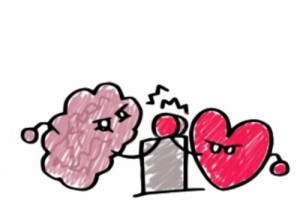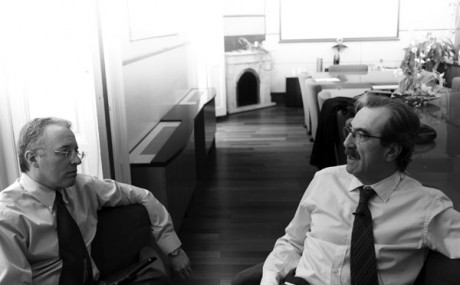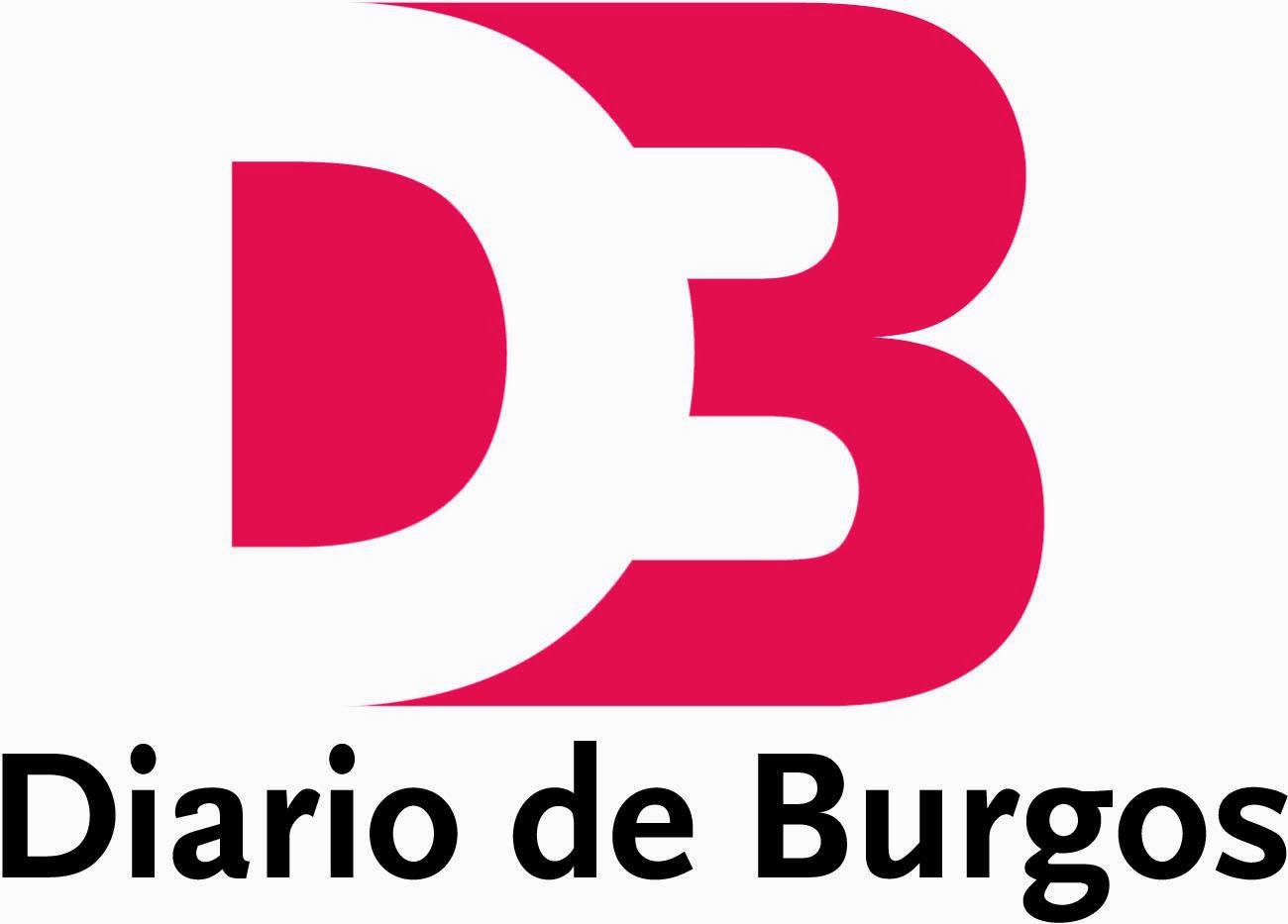¿Cabeza fría o corazón caliente?
Confiéselo: a la hora de tomar una decisión importante, ¿cuántas veces se ha visto usted en la disyuntiva de elegir entre lo que le dicta la cabeza y lo que le pide el corazón?, ¿de enfrentar en la balanza la cabeza fría contra el corazón caliente? Respuesta: más de una vez y, quizá, varias veces cada día. En una situación como ésta habrá tenido en consideración miles de argumentos.
Por una parte, del lado del corazón, le habrán retumbado en los oídos una y otra vez los versos de Sabina: “Para decir con Dios, nos sobran los motivos”. Pero por otra, del lado de la cabeza fría, se habrá detenido a sopesar minuciosamente lo que gana, lo que pierde, lo que deja de ganar (personal y económicamente), lo que pesa la hipoteca, el préstamo del coche, el colegio de los niños, o esa preciosa carrera profesional que puede estar poniendo en peligro si saca a pasear un poquito el corazón.
Pues bien. ¿Qué hacer?, ¿cabeza fría… o corazón caliente? La cabeza fría es algo que siempre nos han recomendado desde niños: no cojas esas rabietas, controla tu mal humor y cuenta hasta 10 antes de contestar. De hecho, en alguna de estas tribunas me atreví a recomendar como dieta saludable aquella que incluyese cada mañana un buen sapo que tragar para entonar el día. No olvidemos que todos, absolutamente todos, los que ocupan puestos de responsabilidad, intentan calibrar, medir y evaluar las consecuencias de sus decisiones.
Sin embargo, aun reconociendo la necesidad de pensar con cabeza, hoy me ha parecido interesante sacar a pasear las bondades de las decisiones tomadas con el corazón y en caliente. Quien sabe; a lo mejor, después de este artículo a alguien se le ocurre el disparate de crear un nuevo estilo de gestión –que podría llamarse algo parecido a casquería management- para referirse a aquel modelo que saque a relucir los instintos, el corazón, las tripas, la víscera, las emociones y hasta las pasiones. Vamos, no voy a ponerme ahora a reivindicar una suerte de Matanza de Texas del management, pero sí me ha parecido interesante reflexionar sobre cuándo y por qué conviene dar rienda suelta de ves en cuando al corazón en la toma de decisiones.
En primer lugar, un buen momento para pasear el corazón es cuando se va a empezar algo desde cero. Como no tengo nada que perder y mucho que ganar, me puedo permitir el lujo de cometer ciertas locuras, de tomar ciertas decisiones que, en otras circunstancias, no me arriesgaría. En concreto, me estoy refiriendo al nacimiento de ese tipo de empresas visionarias, de las que más de uno pensaría el batacazo que se iban a dar al ponerlas en marcha. Pongamos ejemplos y entenderemos lo que digo. Quién iba a decir a David Filo y a Yerry Yang, creadores de Yahoo, que aquello que habían pensado como una especie de directorio de páginas web se convertiría con el paso del tiempo en portal de portales de Internet, o a Leopoldo Pujals, cuando tuvo la cabezonería de apostar en el país de las tapas por llevarte las pizzas a casa con su Telepizza, o a Ramón Areces, cuando tuvo claro que El Corte Inglés devolvía el dinero si el cliente no quedaba satisfecho, o a Enric Bernat, cuando en 1958 se le ocurrió vender un caramelo pegado en un palito al que puso por nombre Chupa Chups. Pues, posiblemente, a todos estos personajes, la razón les decía que eso no era la manera ortodoxa de proceder; pero su víscera, su corazón se reafirmaba en sus intuiciones.
Otro buen motivo para decidir con el corazón bien caliente es cuando crees que se están violando tus principios. Me estoy refiriendo a cosas tan concretas y abstractas a la vez, como la amistad, la ética, la dignidad, la profesionalidad, la responsabilidad, la honestidad y la ejemplaridad. Y en esto no se puede ser dogmático, porque cada persona y cada cultura tienen sus propios valores. Aquí no hay absolutos y el límite se lo marca cada cual. Pero asumiendo necesariamente esta diversidad, el corazón aquí tiene mucho que decir.
Por una parte, tiene mucho que decir para gritar ¡hasta aquí hemos llegado! Pero pensemos, por ejemplo, en cómo actuaríamos en función de nuestra propia escala de valores ante situaciones de acoso moral en el trabajo –lo que los anglosajones denominan mobbing-; o ante proposiciones de pequeños o grandes cohechos, aun cuando no representen delito alguno; o ante la tentación de arruinar la carrera profesional de un colega, si con eso salvamos la nuestra. Y, por otra, el corazón también tiene mucho que decir a la hora de reafirmarse en las decisiones a tomar en tiempos de dudas; en este sentido, es curioso comprobar la fuerza de los valores y principios para encontrar la paz personal.
Recuerdo que un buen amigo resolvió una de las papeletas más difíciles de su vida profesional recurriendo a sus valores; le tocó gestionar por encargo de su compañía matriz, el cierre y liquidación de la empresa en la que trabajaba, a la que había llevado casi todo su equipo, y con los que la había levantado de la nada. “Voy a hacer lo que me gustaría que hicieran conmigo”, pensó. Y a partir de ahí comenzó a colocar a su equipo, gestionó los pagos, incentivó bajas, prejubiló, ayudó a aquellos que se convirtieron en autónomos y cuando terminó el trabajo, dimitió y abandonó su puesto en la matriz, que le había prometido el oro y el moro por gestionar ese proceso sin ruido social.
Otro buen motivo para sacar a relucir la fuerza del corazón es cuando se producen injusticias hacia tu gente. Éste suele ser uno de los terrenos más resbaladizos, porque ¿quién se atreve a poner la mano en el fuego para defender a tal o cual persona? No daré nombres concretos, ni de uno ni de otros, pero lo cierto es que éste es uno de los puntos críticos. Y aquí, aun cuando la cabeza tiene que ser capaz de medir las consecuencias, creo que el corazón tiene que empezar a latir con fuerza. Siempre tengo presente a ese tipo de personas que mantienen su posición porque no supieron –o no quisieron- defender a sus colaboradores. Y esto, o se hace en caliente –“el llanto sobre el difunto”, como decía el que fuera consejero delegado de una de las más importantes empresas industriales del país- o después no se hace.
Además, no se engañe nadie: en la medida en que no quieras o no sepas defender a tu gente, sábete que tarde o temprano irán contra ti. Ya lo dijo Martín Niemöller (no Bertolt Brech), el pastor protestante alemán en 1945, después de referirse a la pasividad del mundo ante el exterminio nazi a los comunistas, a los socialdemócratas, a los sindicalistas y a los judíos: “Cuando vinieron a por mí, ya no quedaba nadie que pudiera protestar”.
Otra ocasión interesante para actuar con el corazón es cuando sabes que lo tienes todo perdido. Aquí, junto con un gran subidón de adrenalina, entra también a formar parte la épica. Podríamos poner buenos ejemplos de la vida empresarial, pero en esta ocasión prefiero recurrir al fútbol. Las remontadas europeas de aquel Real Madrid de los ochenta, que provocaron la famosa apelación de Valdano al miedo escénico, son un buen ejemplo. Y eso no es fruto de una cabeza fría, de mantener el control. Eso es fruto de poner el corazón a 180 pulsaciones, de apretar los dientes, de saber sufrir, y de decir que o todo o nada. En eso no cabe ser pusilánime: o te entregas con pasión, o pasas por la vida como un espectador de una película que no es tuya.
Y para terminar, creo que el corazón también hay que sacarlo a relucir en aquellos momentos que suponen la inflexión definitiva de la vida personal o profesional de alguien. No me voy a tirar aquí por la vía personal (aun cuando las grandes historias de la humanidad están llenas de ejemplos), sino que me quedaré en lo trivial que es esto del comportamiento corporativo. Vargas Llosa, en su libro Conversaciones en la Catedral, recoge un diálogo entre dos amigos que reflexionan sobre en qué momento de la historia se echó a perder su país, Perú: “¿Cuándo se jodió Perú?”, le pregunta uno a otro. Y esa frase refleja perfectamente lo que digo.
Todos en la vida profesional hemos vivido momentos que, echando la mirada atrás, se han revelado como momentos que nos cambiaron la vida: si no me hubiera callado, si hubiera reaccionado o si lo hubiera sabido. Yo tengo los míos y usted, lector, seguro tendrá los suyos. Es más, tengo casi identificadas las fechas concretas en las que pasaron los cinco o seis momentos en los que me jugué mi carrera profesional. Y en casi todos ellos, créame, permití que toda mi casquería personal (corazón, tripas…) tuviese algo que decir.
Pues éste es el tema. Cabeza fría o corazón caliente. Y debe ser importante, porque al final ha llegado al cine de la mano de Spielberg y Kubrick con su inteligencia artificial (AI). Pero hasta en el cine el niño robot quiere sacar a pasear su corazón. Y si un robot quiere un corazón, ¿por qué los humanos nos empeñamos en esconderlo?
Publicado en el Diario Cinco Días, 5 octubre 2001
Reacciones a este post: Josep María Lozano, La "0", siempre la "o": he ahí el reto.
(English version)
Cool head or warm heart?
Admit it: when it comes to making an important decision, how many times have you found yourself in a position where you have to choose between what your head tells you and what the heart wants? Balancing the cool head and the warm heart. Answer: more than once and maybe even several times a day. In a situation like this, thousands of arguments can be taken into account.
On the side of the heart, you would have been reminded time and again of the verses of Spanish poet Joaquín Sabina: “There are more than enough reasons for us to part ways” (Para decir con Dios, nos sobran los motivos). But on the other hand, thinking with a cool head, you have to weigh carefully what would be won, what lost, what would you stop earning (personally and economically), the cost of the mortgage, the loan for the car, school for the children, or that beautiful professional career that could be put in danger if the heart shows through just a little.
Well then. What can we do? Cool head or warm heart? A cool head is something that has been recommended to us ever since we were children: don’t lose your temper, don’t be moody, count to ten before replying. In fact, in one of these columns I even went as far as to recommend a healthy diet that included starting the day by eating a slice of humble pie. We shouldn’t forget that everyone, absolutely everyone, that occupies a position of responsibility, tries to calibrate, measure and evaluate the consequences of their decisions.
However, despite recognising the need to think with the head, today it would be interesting to air the benefits of decisions taken with the heart in the heat of the moment. Who knows, maybe after reading this article a new management style might occur to someone – it could be called “gut management” – referring to a model that brings out the power of instinct, heart, guts, emotions and even passion. Now, I’m not going to try and defend a type of Texas Chainsaw Massacre style of management, but it does seem interesting to reflect upon when, where and why it is sometime appropriate to give free reign to the heart when making decisions.
First off, a good moment to listen to the heart is when you are starting something from scratch. Since I have nothing to lose and everything to gain, I can allow myself the luxury of being a bit crazy, of taking certain decisions that, in other circumstances, I wouldn’t risk. Specifically, I am referring to the founding of “visionary” companies, those companies that more than one person thought would be brought back to earth with a bump right after being started. Let me give some examples to help you understand.
Who would have said to David Filo or to Jerry Yang, founders of Yahoo, when what they started as a kind of directory of webpages turned into the portal of all internet portals, or to Leopoldo Pujols, when he was stubborn enough to bet on pizzas in Spain, the country of tapas, with “telepizza”, or Ramón Areces, when he knew that El Corte Inglés should give customers their money back if they weren’t completely satisfied, or Enric Bernat, when in 1958 he decided to sell a sweet attached to a stick and called it Chupa Chups. Quite possibly, all of these people knew that logically what they were doing wasn’t the best way to proceed; but their gut feeling, heart, reaffirmed their intuition.
Another good reason to make decisions in the heat of the moment is when you believe your principles are being violated. I am referring to both specific and abstract things such as friendship, ethics, dignity, professionalism, responsibility, honesty and exemplariness. And you can’t be dogmatic when it comes to these things, because each person and each culture has their own values. There are no absolutes and each person defines their own limits. Taking these differences into consideration, the heart can play a useful role.
On one hand, there’s a lot to be said for saying, “enough is enough”, but think, for example, about how we would act according to our own values in a situation of moral harassment at work or mobbing; or when faced with a proposition that could yield a certain benefit, even when it is not yet technically a crime; or when you have the temptation to ruin a colleague’s professional career, if by doing so we can save ours. And, on the other hand, the heart can tell us many things when it comes to staying true to decisions in times of doubt; in this sense, it is interesting to experience the strength of values and principles in finding personal peace.
I remember that a good friend resolved one of the most difficult situations of his professional life by relying on his values; he had to manage on behalf of the parent company, the closure and liquidation of the company where he worked, where he had taken most of his team, and with whom he had built the company up from nearly nothing. “I will do to them what I would like them to do with me”, he thought. And from there he started to place his team, manage the payments, incentivised voluntary redundancies, early retirements, helped those who became self-employed and when he finished, resigned from the both the business and from his position in the parent company, one that had promised him big rewards to manage the process without creating waves.
Another good motive to use your heart is when your team or employees are suffering injustice. This is normally one of the more difficult areas, because who would dare to put their hand in the fire to defend another person? I won’t give you specific names, neither of one person or the other, but it is definitely one of the key points. And here, even when the head has to be capable of measuring the consequences, I think the heart has to start to beat strongly. I always remember people who keep their jobs because they don’t know how, or don’t want, to defend their colleagues. And that is something that you must do in the moment, you can’t do it after they are gone.
Also, don’t be fooled: by the extent that you don’t want to or don’t know how to defend those around you, know that sooner or later they will come for you. This was something said by Martin Niemöller (not Bertolt Brecht), the German protestant Pastor who in 1945, after talking about the passiveness of the world as the Nazi exterminated the communists, the social democrats, the union leaders and the Jews: “When they came for me, there was nobody left to protest”.
Another interesting time to act with the heart is when you know that you have lost everything. Here, together with a great adrenaline rush, the heart plays a part in giving us epic stories. We could find some good examples from the business world, but on this occasion I prefer to use football. The comebacks on the European stage of the Real Madrid of the eighties, that led to the famous tribute of Valdano to “stage fright”, are a good example. And this is not fruit of a cool head, of staying in control. This comes from feeling your heart rate rise to 180bpm, clenching your teeth, knowing how to play through the pain, and give it all or nothing. This is no place for the timid: you go in guns blazing, or you will go through life as a spectator watching a film that isn’t your own.
To finish, I think that the heart should also rule in the turning points in a person’s professional or personal life. I am not going to use examples from people’s personal live (although the greatest stories of human triumph are full of examples), but rather I am going to stick with the more trivial area of organisation behaviour. Vargas Llosa, in his book Conversations in the Cathedral, recounts a conversation between two friends who are reflecting on the moment in which their country, Peru, went to the dogs: “When was Peru screwed?” one of them asked the other. That phrase, knowing the exact time something happened, reflects exactly what I am talking about.
In our professional careers, we have all experienced moments that, looking back, have been moments that changed our lives: if I hadn’t kept my mouth shut, if I had done something or if I had known. I have my moments and you, dear reader, I am sure you have yours. What’s more, I am even fairly certain of the exact date when the five or six key moments in my professional life happened. And in nearly all of them, believe me, I allowed my gut feeling to have its say.
So that’s the thing. Cool head or warm heart. And it must be important, because at last Spielberg and Kubrick’s Artificial Intelligence (AI) has ht the cinemas. And even on the silver screen a robot boy wants to follow his heart, and if a robot wants a heart, why do we humans keep trying to hide ours?
Published in the daily paper “Diario 5 Días” October 5th, 2001










